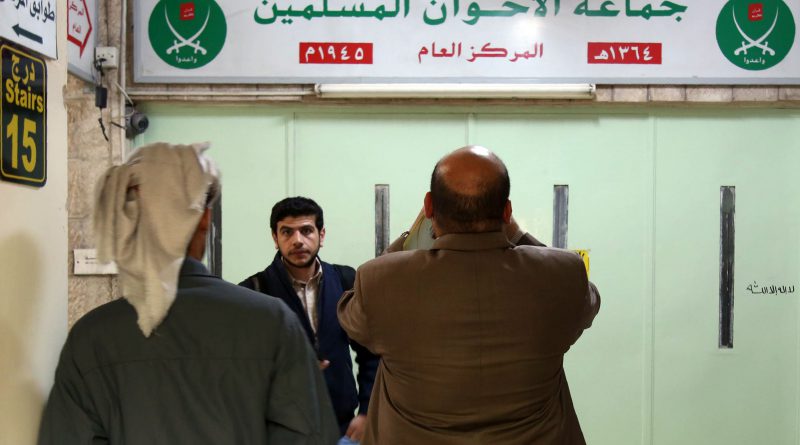Drones, Rockets, and Ballots: The Muslim Brotherhood’s Double Game in Jordan
The Brotherhood’s double game — peaceful reformist by day, radical ideologue by night — is not new, but it’s growing bolder.
By all measures, the recent arrest of 16 individuals linked to the Muslim Brotherhood in Jordan marks a seismic shift in how the group operates — and how seriously it must be treated. The foiled plot wasn’t a back-alley operation by a fringe group.
According to Dalia Al-Aqidi, executive director at the American Center for Counter Extremism, it was a coordinated network with training and funding allegedly sourced from Lebanon. The arrests unearthed a drone manufacturing site and even a rocket ready for launch — right inside the Kingdom.
This wasn’t just a domestic security scare. It’s a flashing red light to the international community: the Muslim Brotherhood is neither dormant nor defeated. It is evolving.
For Jordan, a country that has maintained a delicate balance of internal stability despite a turbulent neighborhood, this plot comes with chilling implications. Even more so because it arrives just months after the Brotherhood’s political arm, the Islamic Action Front, gained traction in the 2024 parliamentary elections. That coincidence is not lost on observers.
Al-Aqidi is blunt in her assessment: the same organization that runs for office with talk of reform is preparing to launch attacks behind the scenes.
The Brotherhood’s double game — peaceful reformist by day, radical ideologue by night — is not new, but it’s growing bolder. It has long perfected the art of political shapeshifting: invoking religion to gain street-level credibility in the Middle East, while adopting the language of democracy and civil rights in the West.
But as Al-Aqidi argues, this is not benign activism. The Brotherhood’s true objective remains unchanged since its founding: a society governed by Islamist Shariah law. The only difference is that, increasingly, it chooses ballots and influence operations over bombs — until, of course, it doesn’t. Violence remains on the table, as Jordan’s recent near-miss shows.
In the U.S., Canada, and Europe, Brotherhood-linked organizations have taken root in civil society — as charities, student groups, lobbying arms and community voices.
According to Al-Aqidi, these groups silence moderate Muslim voices and weaponize terms like “Islamophobia” to deflect scrutiny. It’s not just rhetoric, she insists — it’s a strategy, one that undermines the foundations of liberal democracy from within.
Even more alarming is what she describes as a “convenience coalition” forming between radical Islamists and far-left activists. Their ideologies may differ wildly, but their shared animosity toward the West — particularly America and Israel — provides a common enemy and fertile ground for coordinated disruption.
Yet, despite mounting evidence and repeated warnings from Middle Eastern allies, the West — particularly the United States — has hesitated to act. Egypt, Saudi Arabia, and the UAE have designated the Muslim Brotherhood as a terrorist organization. Washington has not.
Al-Aqidi argues this is due to “willful ignorance and political convenience” — a misplaced hope that the Brotherhood is a “moderate” firewall against more extreme terror groups.
But history says otherwise. The ideological DNA of terror groups like Hamas, Al-Qaeda, and Daesh can be traced directly back to the Muslim Brotherhood. It is not a firewall — it is the foundation.
The time for diplomatic hedging is over, Al-Aqidi urges. She calls on the U.S. government to designate the Muslim Brotherhood as a foreign terrorist organization and to investigate the network of nonprofits and advocacy groups that operate as its front. The aim, she says, is not to stifle religion but to confront a radical ideology masquerading as reform.
Jordan’s discovery was not just a domestic police action — it was a siren call for the global community. The Muslim Brotherhood remains highly organized, deeply ideological, and dangerously underestimated.
The West cannot afford to keep its eyes shut. Inaction isn’t just apathy — it’s surrender.



